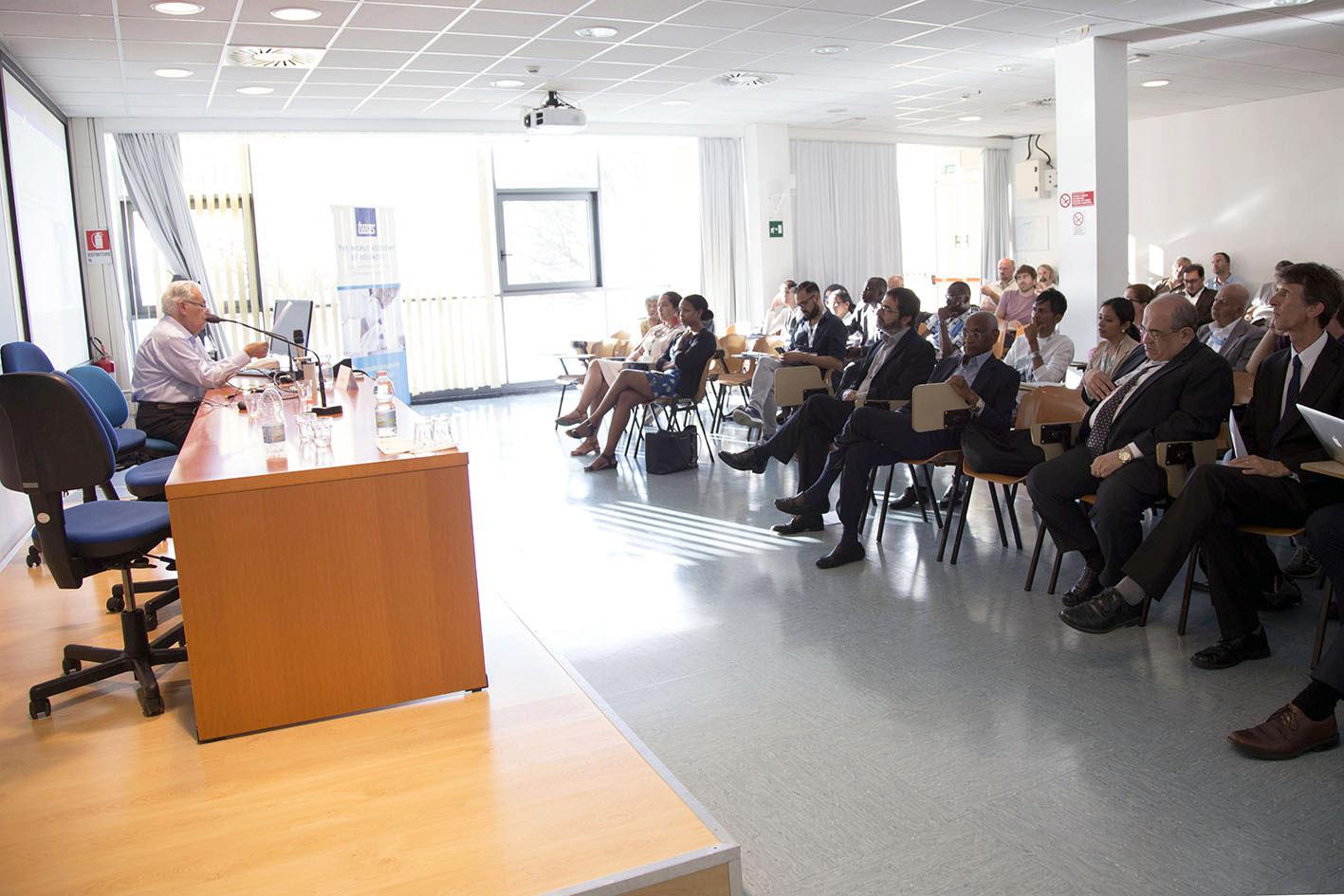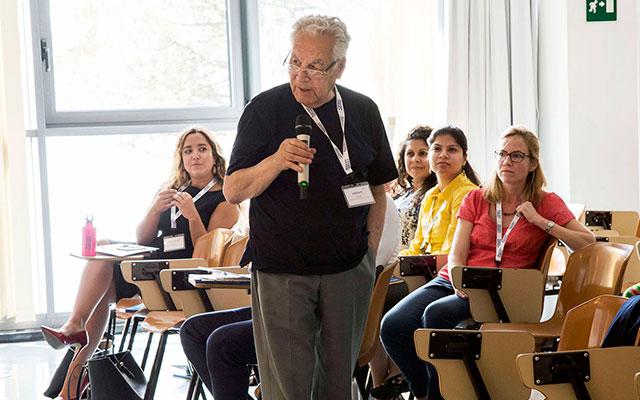![Iranian physicist Yousef Sobouti, a TWAS Fellow, delivered the 2017 Paolo Budinich Science Diplomacy Lecture. [Photo: Paola Di Bella]](/sites/default/files/inline-images/sci_diplo_budinich_sobouti_230817_top_inside.jpg)
In an era of great global challenges and geopolitical tension, the scientific approach to considering problems and building knowledge can guide humanity toward peaceful solutions, Iranian physicist Yousef Sobouti said at TWAS.
In an eloquent address to the annual AAAS-TWAS Summer Course in Science Diplomacy, Sobouti proposed using "the science way" to understand other people and other societies. "Confronted with complexities in their study of natural phenomena, physicists often resort to reduction to basics," he explained. "They identity the prominent features of a phenomenon, strip away the insignificant details and reduce the problem to a bare manageable minimum."
Sobouti, a theoretical physicist and astronomer, is the founder and director of the Institute for Advanced Studies in Basic Sciences (IASBS) in Zanjan, Iran. He has made significant contributions to research and science education in the Islamic Republic of Iran, and his influence has extended far beyond the country's borders.
See the full text of Yousef Sobouti's address, "Understanding Others the Science Way".
His remarks on science and human understanding came during the annual Paolo Budinich Science Diplomacy Lecture, which is delivered within the science diplomacy course organised by the American Association for the Advancement of Science (AAAS) and TWAS. The lecture was introduced by Fernando Quevedo, director of the Abdus Salam International Center for Theoretical Physics (ICTP), and by Peter McGrath, coordinator of the TWAS science diplomacy programme.
In his lecture, Sobouti traversed the continuum of human knowledge: from the "exact sciences" such as physics and chemistry that can be tested, verified and advanced, to the "opinion-based creeds", which resist empirical verification.
Historically, he suggested, the exact sciences have had a very effective approach to evaluating problems and solving them peacefully. But at the other end of the spectrum, opinion-based creeds have sometimes been associated with more tragic outcomes.
Socrates was sentenced to death for challenging social values in ancient Greece. Jesus of Nazareth died for challenging the orthodox faith of his community. And while Islamic culture was thriving between the 8th and 12th centuries, an opposition to science that emerged in that time eventually contributed to a decline. In more recent times, Sobouti said, Marxism as practiced in the Soviet Union or some Western notions of human rights fall into the same category.
"The pattern is always the same," Sobouti argued. "Two factions oppose each other over a vaguely conceived cause, such as a religious teaching, a social value, a moral code of conduct, a philosophical doctrine, or a material interest. Opponents don't find a common ground to settle disputes and resort to the zeal of their followers.
"By the 21st century, many of the natural, human, and social sciences have achieved acceptable levels of clarity, and their practitioners have learned to reconcile differences through sober dialogues," he continued. "This is a welcome development."
But in areas such as ethics, cultural mores and international relations, the knowledge has not been refined to a more exact state. "They may mean different things to different people, to different cultures, at different times and places," he said. "At times they may become sources of conflict."
That's where the cool precision of scientific thinking can have a value, even for non-scientific issues. But that would require a change of cultural or political habits – a difficult change that, in Sobouti's view, has two keys:
"Not presenting one’s beliefs as evidence of one’s rightfulness and righteousness, (and) not considering any concept sacred, no matter how widely popular it may be."
His conclusion: "Strict observation of such seemingly simple criteria in non-scientific cases is not easy. A conscious effort to adhere to them, however, should be rewarding and help one better understand others."
Sobouti was closely associated with ICTP in its early years and was a working colleague of Nobel Laureate Abdus Salam and Budinich; he has served on ICTP's Scientific Advisory Committee. He was elected a TWAS Fellow in 1987, just four years after the Academy was founded.
Paolo Budinich was a profoundly influential Italian physicist and a scientific partner of Salam. Together they developed and launched ICTP in 1964, in Trieste, Italy. Budinich also played a significant role in Salam's work to found TWAS and he helped to develop other national and international scientific institutions in Trieste. He died in 2013.
Learn more about the TWAS science diplomacy programme.
Edward W. Lempinen



